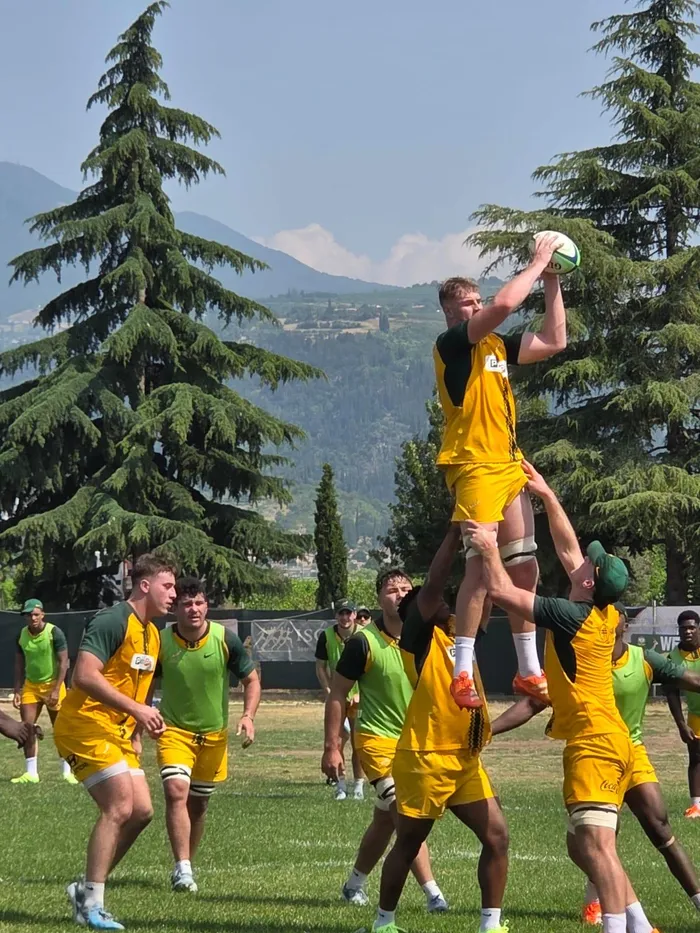Conditioned for greatness: Junior Boks primed for England clash

The Junior Springboks made a strong start to their U20 Championship campaign in sweltering Italy, thanks to top conditioning and smart recovery strategies
Image: SA RUGBY
THE SPRINGBOKS klapped the Baa-baas in the Cape, and the Proteas zapped Zimbabwe in Bulawayo.
These two top-class performances are a feather in the cap of South African sport and serve as motivation for other SA teams to pull themselves up by their bootstraps to compete at the heights of their potential.
Case in point: the Junior Springboks, currently competing in the World Rugby Under-20 Championship in a sweltering Italy.
Apart from the challenging tournament format – only four of the 12 teams will qualify for the semi-finals and have a shot at tournament glory – the participating teams also have to contend with the unusually high summer temperatures gripping Italy and much of Europe at present.
South Africa and its southern hemisphere counterparts – Australia, New Zealand and Argentina – left winter weather behind when they travelled to sun-soaked Italy for the annual U20 global showpiece.
The Junior Boks adapted well, it would seem.
Last Sunday, they got their Championship campaign off to a good start when they outplayed Australia in their opening Pool A match in Calvisano, with their physicality, fitness and conditioning all contributing to the winning performance.
But in a tournament of this calibre, with quick turnarounds between matches, one good outing is no guarantee of getting a sniff of ultimate glory.
The SA staff are aware of this. They know that preparing an elite rugby team requires a multi-faceted approach – with player load management, nutrition, medical care, and fitness and conditioning all integral parts, alongside training and recovery.
Much of the strategy to overcome the physical demands falls on the shoulders of Thulani Nteta, the Junior Springboks' strength and conditioning coach. Nteta’s task is to implement a plan that not only sees the team reach peak fitness for the tournament but also maintains that level throughout the demanding four-week campaign.
Nteta, who is part of the team's medical and conditioning staff, works closely with colleagues to ensure the young South Africans stay fit, conditioned, and well.
Recovery and preparation strategies are key
According to Nteta, the tournament format plays a big role in shaping their recovery and preparation strategies.
“We have to keep in mind that the competition is played over a five-day turnaround and not your standard six or seven days between matches,” said Nteta. “With that in mind, recovery becomes a crucial aspect of conditioning, to make sure we are giving the players optimum time to perform come match-day.”
Nteta added that modern-day technology is also used to great effect: “Monitoring devices such as the Kitman App and GPS tracking systems allow for faster and better intervention where needed. It also helps us to make informed and calculated decisions around player wellness and loads.”
By using the mobile application, players can directly input information about their training load, well-being, sleep, and recovery.
“We are then able to take the information to the coaches, which helps support planning for their training sessions,” said Nteta, adding that there is also an educational and developmental side to their work.
“That is to make sure the players understand the ‘why’ behind all the strategies and protocols we ask of them.”
The Junior Boks face defending champions England on Friday at 6pm in Rovigo in a much-anticipated second Pool A match.
Related Topics: